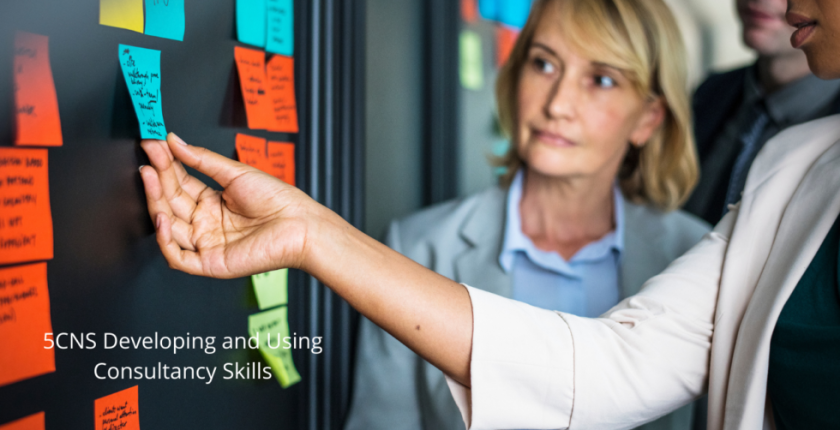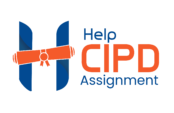5CNS Developing and Using Consultancy Skills
- September 18, 2021
- Posted by: admin
- Category: CIPD Level 5

As part of both human resource studies and leadership and development studies, a unit is dedicated to developing and using consultancy skills. Students will understand consultancy as a process and its importance in an organization by taking this module. This module aims to enable students to explore some of the techniques and skills that make a successful consultant. The majority of HR careers require consulting skills, such as addressing business needs by consulting with clients, negotiating, evaluating, and closing a deal to come up with a solution to a problem. In order to understand the unit, it is essential to understand that it will evaluate the characteristics associated with an “effective consultant.”. The unit’s primary purpose is to develop a clear understanding of the nature of consultancy and its related concepts among learners. Learners are expected to leave this unit more confident, competent, and capable of developing customized solutions to satisfy the needs of different people and organizations.
The consultants within a company are experts appointed to perform a specific function. As opposed to ordinary employees, consultants are responsible for handling a specific need either internally or externally. Those wishing to work in Human Resources and Learning and Development departments will find this helpful unit. Additionally, individuals who are interested in developing their consultancy skills should consider enrolling on the unit. People responsible for marketing their consultancy portfolios can also benefit from understanding the skills and techniques for effective consulting.
Objectives
This unit’s purpose is to:
- Develop students’ understanding of consultancy.
- Identify the different skills and techniques required for effective consulting.
- Develop learners’ confidence in providing customized solutions.
The role of a consultant
Those who take this unit should understand that consultants have two kinds of roles. An organization can hire independent consultants as well as consultants who the organization employs. In reality, each consultant has a unique skill set that makes them experts in a particular field. Consultants generally have skills in the people profession like human resources or leadership and development, which help them build relationships with clients. It is also essential to have people skills to solve problems and make recommendations. Consultants from within the company are responsible for implementing the recommendations. It is common for external consultants to travel to their clients’ companies, where they stay for a few days during the assessment process. An external consultant provides independent advice based on their assessment.
In this unit, we will cover the basic and typical activities that consultants perform, such as:
- Client relationships are built through relationship building
- Understanding the needs of an organization
- Developing solutions tailored to the needs of a particular organization
- Making proposals and writing reports
- Taking the time to listen to the clients
- Managing projects to meet the needs of the client.
The unit’s content
By the end of the unit, the unit will have defined consultancy, provided examples of consulting, and explained the consulting stages. Moreover, the course will provide a deeper understanding of consultancy models and theories. Consulting can either be done internally or externally for an organization. In addition to assessing different consulting areas, learners will also be able to analyze the content of consultancy agreements. Students will also be taught valuable lessons on how to build a consultancy business in various contexts, including private and public organizations and non-profits. Learners must be taught the ethical considerations they should take into account when consulting. In addition to explaining the three stages of the consulting process, learners will also be shown how a consulting project works. As a first step in consulting, a company must first determine the needs of the enterprise. In the next step, a consultant clarifies expectations, gathers and analyses information on the problem, formulate recommendations, implement sustainable change, and take closing stock or data.
For consultancy to be successful, it is essential to incorporate a social element. Consulting should involve working with various people to reach a learning and development solution. Through developing proper problem identification skills, this unit will enable learners to identify problems in organizations. Participants will also learn about developing opportunity identification skills through interviews, attending meetings with stakeholders, and reviewing documents. Understanding how to justify a proposed solution is one or more core skills of a good consultant. Throughout the course, learners will be taught how to advocate for solutions that involve minimal risk while presenting their expectations. HR and LD professionals must report progress as well. During the assessment for consultancy skills, learners will learn how to report progress and what form of reporting is appropriate for each situation. The reporting of the solution and recommendations is also a critical component of consulting. Last but not least, the unit will cover the frustrations experienced by client-consultant relationships. Several issues will be addressed in the module, including communication difficulties, unrealistic expectations, and failure to follow minor details.
Learning Objectives
Students will be tested at the end of the unit, and the person who has completed the course should be able to demonstrate:
- An understanding of what consulting is and the standard phases of the consulting process. Comparing and contrasting different types of consulting and identifying the stages of consultancy should be able to be done by the student.
- Establish a relationship with their clients. By the end of the course, learners will work with their clients to identify the problem or opportunity that needs to be addressed. The consultants will also assess possible solutions and make recommendations to the client.
- Provide client support during implementation. The client’s support can be demonstrated through progress reports and simple oral reports. In addition, learners will make any necessary recommendations to ensure the sustainability of the organization. The importance of discussing common problems and avoiding them is also crucial in client support.
Wrap Up
The knowledge acquired at the end of the unit is crucial for practical consultancy activities. Since the HR and L&D professions are highly dependent on consulting, all practitioners should be skilled at consulting. In addition to becoming experts in effective consultancy, future HR and L&D professionals will become more desirable to employers through the completion of the unit. Lastly, learners are responsible for gaining all the skills and knowledge necessary to fulfil their roles within an organization.


